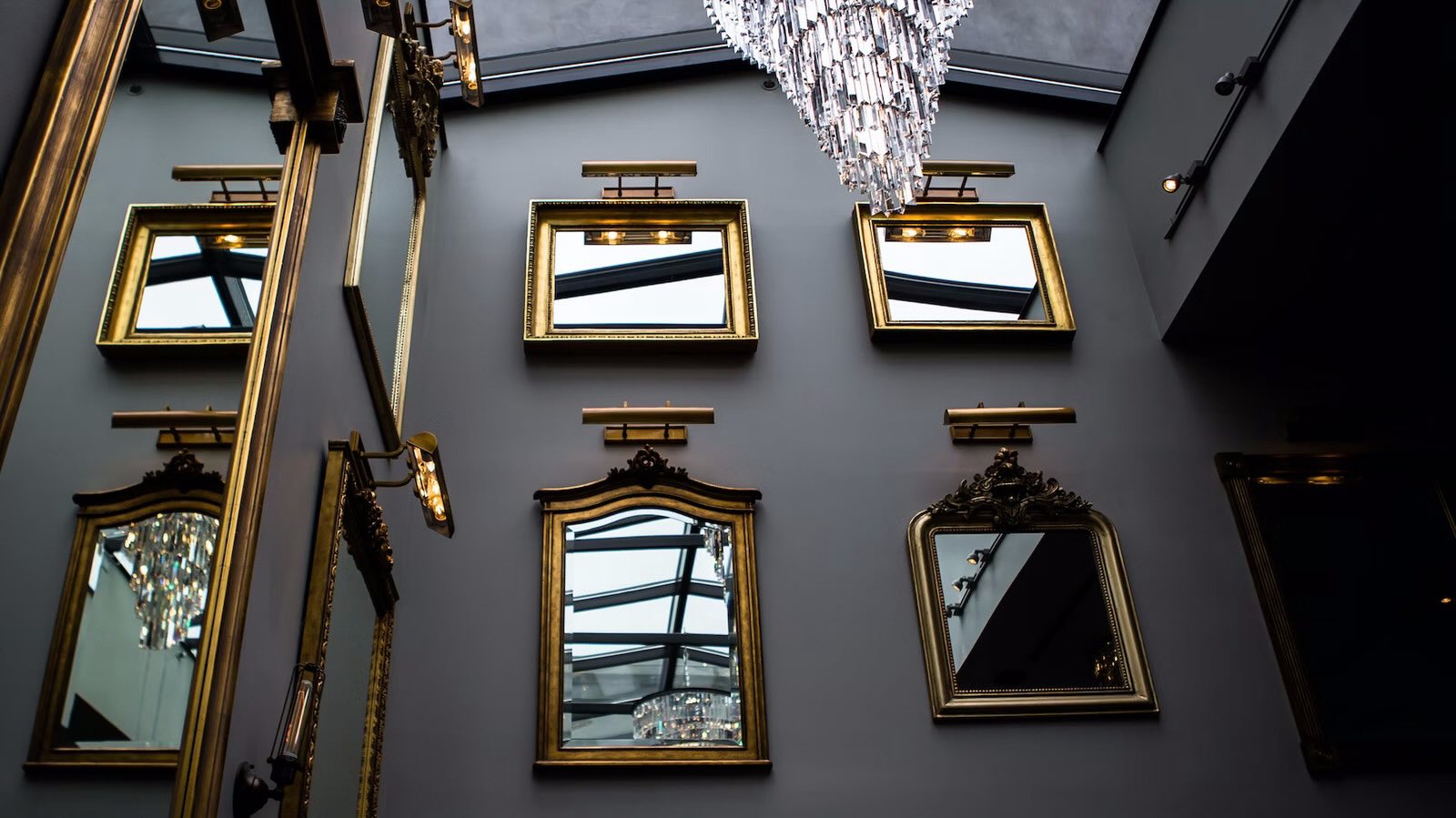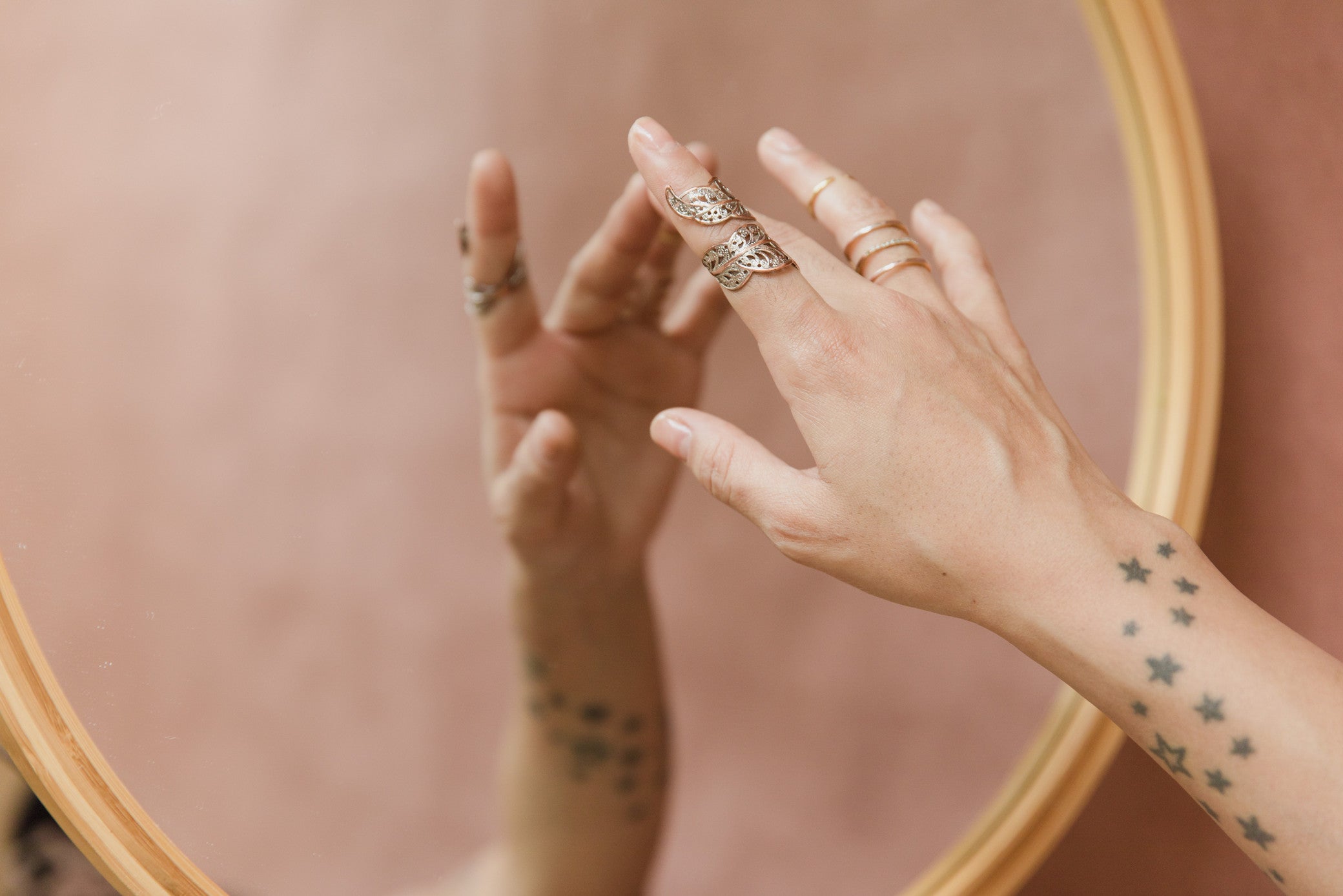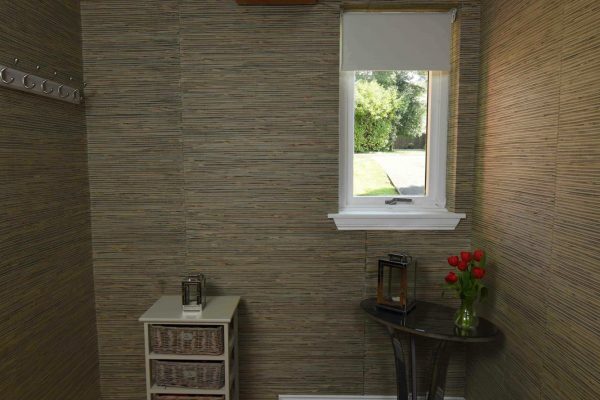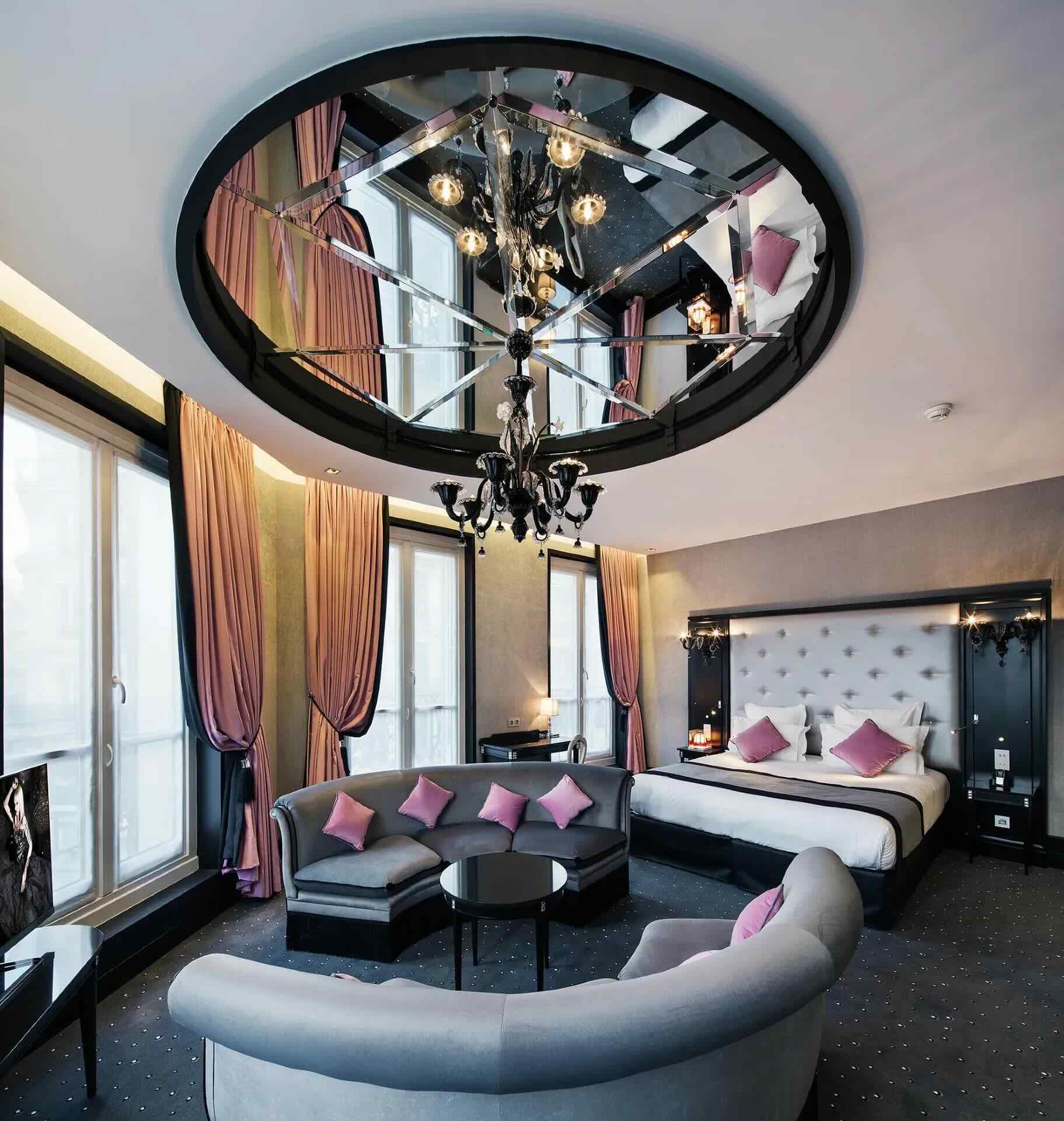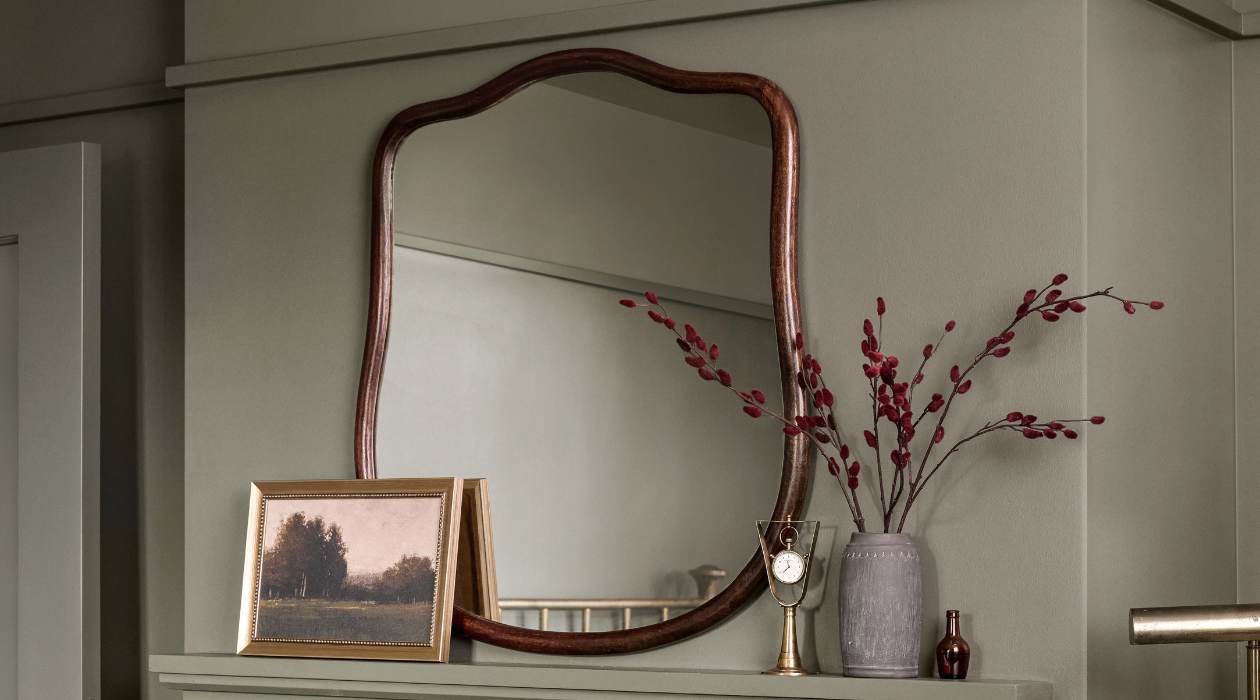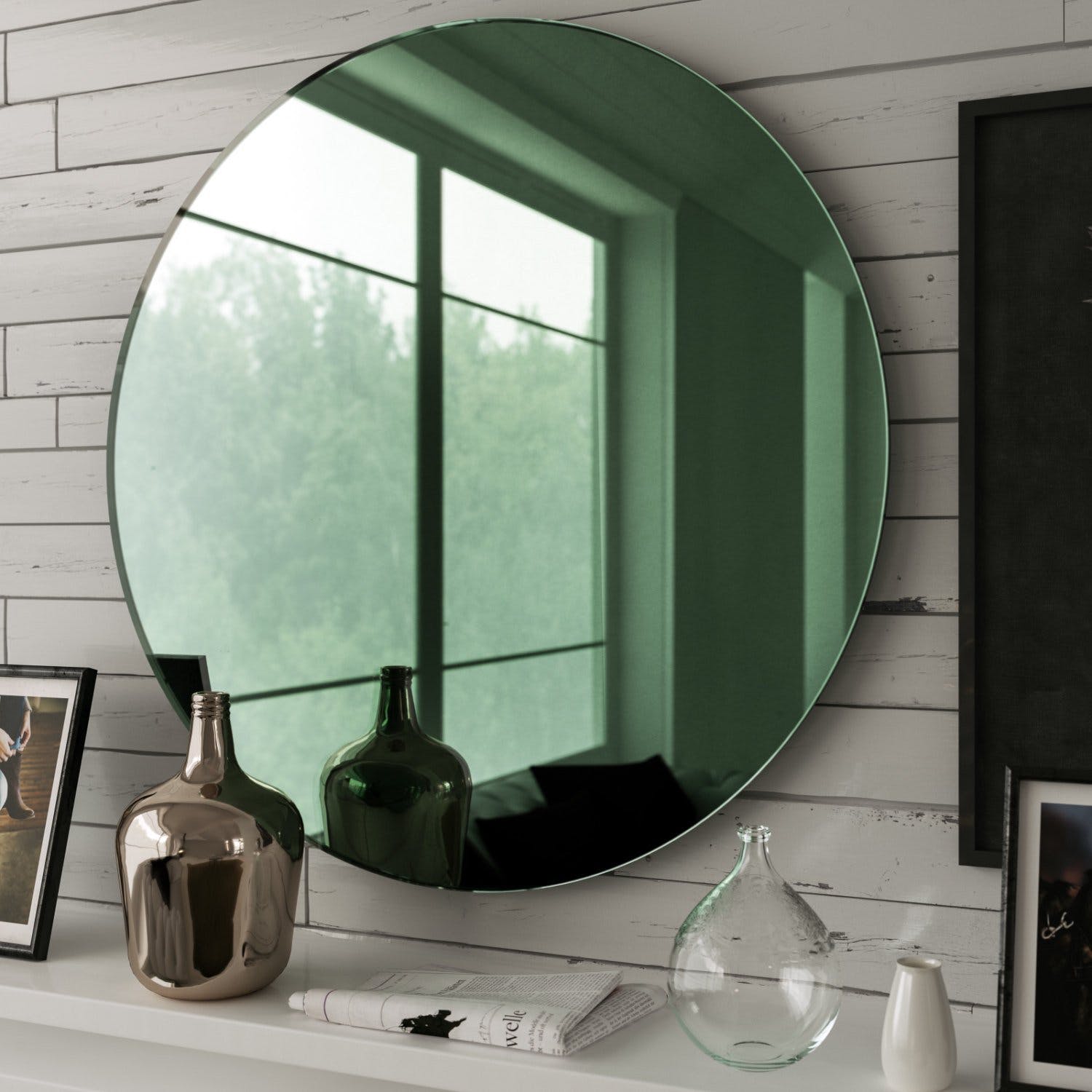Home>Furniture>Bedroom Furniture>Why You Shouldn’t Have A Mirror Facing Your Bed
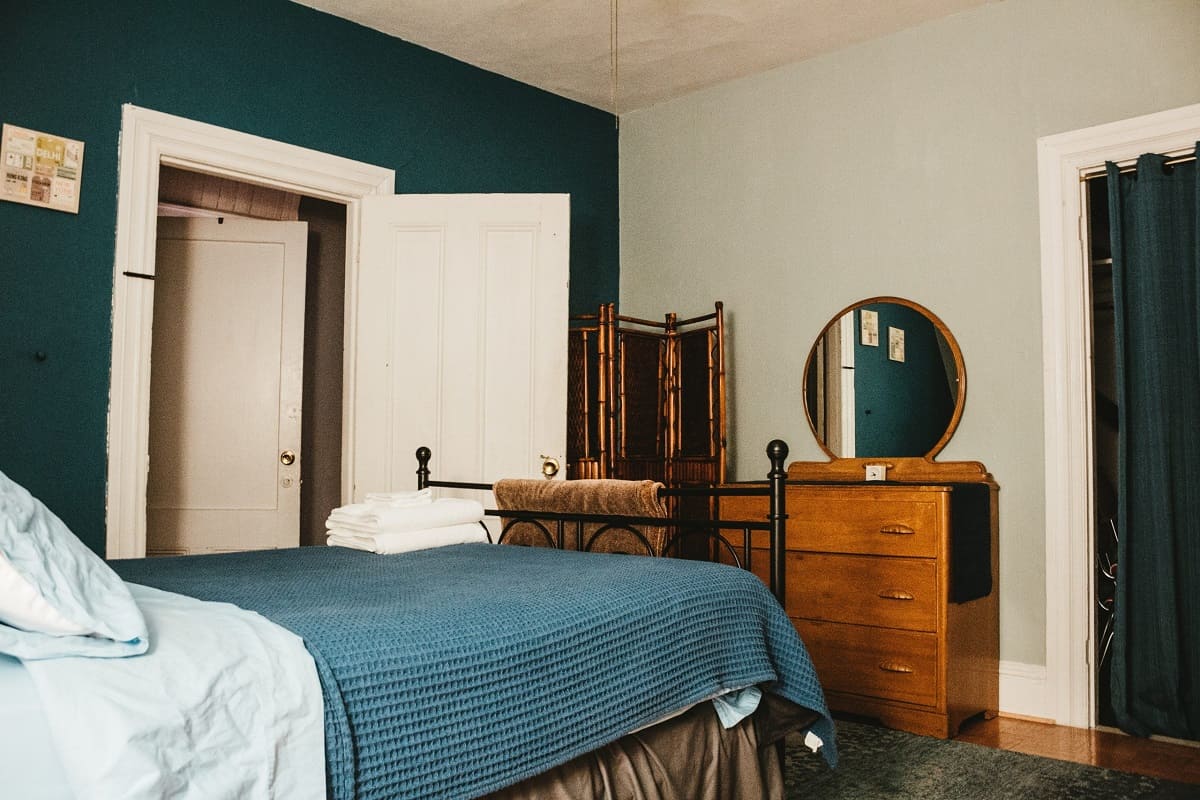

Bedroom Furniture
Why You Shouldn’t Have A Mirror Facing Your Bed
Modified: October 20, 2024
Discover why having a mirror facing your bed can negatively impact your sleep and overall well-being. Enhance your bedroom-furniture setup for a peaceful and restful sleep.
(Many of the links in this article redirect to a specific reviewed product. Your purchase of these products through affiliate links helps to generate commission for Storables.com, at no extra cost. Learn more)
Introduction
When it comes to creating a peaceful and harmonious atmosphere in the bedroom, the layout and arrangement of furniture play a crucial role. Every element in the room has a significant impact on our well-being and energy levels, including the placement of mirrors. In the realm of interior design, one popular concept that focuses on the flow of energy is Feng Shui.
Feng Shui, an ancient Chinese practice, is based on the belief that the arrangement of objects in our environment has a direct effect on our physical, mental, and emotional well-being. It aims to create a harmonious balance between the energy forces, or “chi,” in a space, promoting positive energy flow and creating a sense of tranquility.
When it comes to bedroom layout, the position of the bed is considered to be of utmost importance. However, another aspect that is often overlooked is the placement of mirrors. While mirrors have their own benefits in terms of functionality and aesthetics, having a mirror facing your bed may not be the best choice for a peaceful and restful sleep.
In this article, we will explore the negative effects of having a mirror facing your bed and the importance of proper mirror placement in the bedroom. By understanding these concepts, you can make informed decisions when it comes to arranging your furniture and creating a space that promotes relaxation and rejuvenation.
Key Takeaways:
- Avoid having a mirror facing your bed to prevent disturbed sleep, increased anxiety, relationship strain, and loss of personal energy. Proper mirror placement can create a peaceful and restful sleep environment.
- Consider sidewall placement, reflecting natural light, using mirrors as decor, choosing calming frames, and utilizing closet mirrors to enhance your bedroom’s ambiance and support relaxation. Mirror placement impacts sleep quality and overall well-being.
The Concept of Feng Shui
Feng Shui is an ancient Chinese practice that has been around for thousands of years. It is based on the belief that the arrangement and placement of objects in our environment can affect the flow of energy, or chi, in our lives. The goal of Feng Shui is to create balance and harmony, optimizing the flow of positive energy in order to enhance various aspects of our lives, including health, relationships, and overall well-being.
In Feng Shui, the bedroom is considered a sacred space where we replenish our energy and find solace from the stresses of everyday life. The layout and arrangement of furniture in the bedroom can greatly impact the quality of our sleep and overall wellness.
The placement of the bed is a central aspect of Feng Shui in the bedroom. It is recommended to position the bed in what is called the “commanding position.” This means that the bed should have a clear view of the door and be away from direct alignment with it. This positioning is believed to allow for a sense of security and peace, as well as optimal energy flow.
In addition to the bed, the placement of mirrors is also an important consideration in Feng Shui. Mirrors are known to reflect and amplify energy, so their positioning must be thoughtfully considered to avoid negative repercussions.
According to Feng Shui principles, a mirror facing the bed is considered to be “active” energy. This active energy is believed to disrupt the peaceful and restful atmosphere of the bedroom by reflecting and bouncing energy back into the space. It is thought to create a state of restlessness and unease, resulting in a disturbed sleep and increased levels of anxiety and stress.
However, this doesn’t mean that mirrors should be completely avoided in the bedroom. In fact, mirrors have their own benefits, such as creating the illusion of space, reflecting natural light, and enhancing the overall aesthetic appeal of the room. The key is to find the right placement for mirrors that aligns with the principles of Feng Shui and supports a harmonious energy flow.
Next, we will dive deeper into the negative effects of having a mirror facing your bed and how it can impact your well-being and overall bedroom ambiance.
The Importance of Bedroom Layout
When it comes to creating a peaceful and relaxing atmosphere in the bedroom, the layout and arrangement of furniture play a significant role. The way you position your bed, the choice of colors, lighting, and even the placement of accessories can all contribute to your overall sense of well-being and quality of sleep.
Bedroom layout is especially important because it is the space where we rest, recharge, and escape from the chaos of the outside world. It should be a sanctuary that promotes relaxation and tranquility, allowing us to unwind and let go of the day’s stresses.
One key aspect of bedroom layout is the placement of the bed. As mentioned earlier, in Feng Shui, it is ideal to position the bed in the “commanding position,” which allows for a clear view of the door while avoiding direct alignment with it. This placement is believed to create a sense of security and promote restful sleep.
Another important consideration is the arrangement of other furniture in the room. Creating a sense of balance and flow is crucial for a harmonious bedroom environment. Avoid clutter and ensure that furniture is positioned in a way that allows for easy movement and access.
Proper lighting is also essential for a well-designed bedroom. Natural light is ideal during the day and can be enhanced with the use of light-colored curtains or blinds. In the evening, consider using warm, soft lighting to create a cozy and intimate ambiance.
Additionally, the choice of colors and textures can have a profound impact on the overall mood of the bedroom. Soft, muted colors like blues, greens, and neutrals are known to promote relaxation, while bold and vibrant colors may be more energizing. Choose bedding and accessories that are comfortable and inviting, creating a welcoming space that encourages restful sleep.
Overall, a well-thought-out bedroom layout ensures that the space is conducive to relaxation and rejuvenation. It encourages a peaceful sleep environment, reduces stress, and promotes overall well-being. By paying attention to the arrangement of furniture, lighting, colors, and textures, you can create a bedroom sanctuary that supports good sleep and helps you start each day feeling refreshed and revitalized.
Next, we will explore the negative effects of having a mirror facing your bed and why it may not be conducive to a restful sleep environment.
The Negative Effects of a Mirror Facing Your Bed
While mirrors are often used in bedrooms for their functional and aesthetic purposes, having a mirror directly facing your bed can have negative effects on your sleep and overall well-being. Let’s take a closer look at these effects:
Disturbed Sleep Patterns
One of the main issues with having a mirror facing your bed is the disruption it can cause to your sleep patterns. Mirrors have the ability to reflect and bounce energy back into the room. This active energy can create a restless and unsettled atmosphere, making it difficult for you to relax and fall into a deep and restorative sleep. You may find yourself waking up more frequently during the night or experiencing restless sleep that leaves you feeling tired and groggy in the morning.
Increased Anxiety and Stress
A mirror facing your bed can also contribute to increased levels of anxiety and stress. As you lay in bed, your subconscious mind may pick up on the constant reflection and movement. This visual stimulation can create a sense of restlessness and unease, making it harder for you to fully relax and let go of your worries. Over time, this can lead to heightened levels of anxiety and stress, negatively impacting your overall mental well-being.
Relationship Strain
Another negative effect of having a mirror facing your bed is the potential strain it can put on your relationships. The constant reflection of the bed in the mirror can create a feeling of intrusion and invasion of privacy. This can affect the intimacy and trust between partners, leading to feelings of discomfort and even arguments. It’s important to create a space in the bedroom that promotes a sense of privacy and intimacy, and a mirror facing the bed can disrupt that dynamic.
Loss of Personal Energy
In the practice of Feng Shui, the bed is considered a sacred space where we recharge our personal energy. Having a mirror facing your bed can reflect and bounce back your own energy, causing a loss of personal vitality. This can leave you feeling drained and depleted, both physically and emotionally.
Considering these negative effects, it’s best to avoid having a mirror facing your bed. However, if you still want to have a mirror in your bedroom, there are ways to minimize its impact and create a more harmonious space.
Next, we will provide some tips for proper mirror placement in the bedroom to promote better sleep and overall well-being.
Disturbed Sleep Patterns
One of the primary concerns with having a mirror facing your bed is the potential disruption it can cause to your sleep patterns. A mirror has the ability to reflect and bounce energy back into the room, creating an active energy flow that can interfere with your ability to relax and achieve a deep and restful sleep.
When you have a mirror directly facing your bed, it can create a sense of restlessness and unease. The constant reflection and movement in the mirror can stimulate your visual senses, making it difficult to fully unwind and enter a state of deep relaxation. This can lead to frequent waking up during the night or experiencing restless sleep, leaving you feeling groggy and fatigued in the morning.
Scientific studies have shown that exposure to excessive visual stimulation, especially during the night, can disrupt the production of melatonin, the hormone responsible for regulating sleep-wake cycles. This can result in irregular sleep patterns, difficulty falling asleep, and poor sleep quality overall.
Furthermore, the reflection in the mirror can create a sense of activity and movement that can be distracting and prevent your mind from entering a state of calmness. Your subconscious mind may pick up on these visual cues and keep you in a more alert state, inhibiting the ability to achieve deep sleep where the body can fully repair and rejuvenate itself.
Disturbed sleep patterns can have a profound impact on your overall health and well-being. Lack of quality sleep can lead to daytime fatigue, difficulty concentrating, mood swings, and a weakened immune system. It can also increase the risk of developing chronic health conditions such as obesity, diabetes, heart disease, and depression.
Therefore, it is essential to create a sleep environment that promotes relaxation and supports healthy sleep habits. Removing or repositioning a mirror that faces your bed can be a simple but effective step towards improving your sleep quality.
In the next section, we will explore the increased anxiety and stress that can result from having a mirror facing your bed.
Read more: Why Do Bars Have Mirrors
Increased Anxiety and Stress
Having a mirror facing your bed can contribute to increased levels of anxiety and stress. The constant reflection and movement in the mirror can create a sense of restlessness and unease, making it more challenging for you to fully relax and let go of your worries.
Our subconscious mind is highly receptive to visual stimuli, even when we are asleep. As you lay in bed, your subconscious can pick up on the movement and reflection in the mirror, triggering a heightened state of alertness. This can lead to a racing mind, intrusive thoughts, and an overall sense of unease, all of which contribute to increased anxiety levels.
In addition, the presence of a mirror facing your bed can act as a constant reminder of your appearance and self-image. It may amplify self-criticism and create a sense of self-consciousness, especially when you are in a vulnerable state during bedtime or upon waking up. This can lead to heightened levels of stress and a negative impact on your self-esteem.
Moreover, the reflection in the mirror can create a sense of psychological unease, as it may give an illusion of being watched or observed. This feeling of intrusion and lack of privacy can contribute to feelings of discomfort and heightened anxiety.
Studies have shown that high levels of anxiety and stress not only affect our mental and emotional well-being but can also have negative consequences for our physical health. Chronic stress is linked to a variety of health issues, including weakened immune function, increased blood pressure, and an elevated risk of developing cardiovascular disease.
In order to promote a calm and restful sleep environment, it is advisable to avoid having a mirror facing your bed. By eliminating this visual stimulus, you can create a more relaxed atmosphere that supports a restorative sleep and helps to reduce anxiety levels.
In the following section, we will discuss how a mirror facing your bed can strain your relationships.
Relationship Strain
Having a mirror facing your bed can potentially strain your relationships, especially your romantic partnership. The constant reflection of the bed in the mirror may create a feeling of intrusion and invasion of privacy, which can disrupt the intimacy and trust between partners.
Intimacy and privacy are vital components of a healthy and fulfilling romantic relationship. The bedroom is a space where couples can retreat and connect on an intimate level. However, when a mirror is positioned in a way that directly reflects the bed, it can compromise this sense of privacy and lead to discomfort.
The constant reflection of the bed can make one or both partners feel like they are being watched or observed, even if it’s just their own reflection. This feeling of constant observation can create a sense of self-consciousness and inhibit the ability to fully let go and be vulnerable with one another, hindering the emotional and physical intimacy in the relationship.
Additionally, the presence of a mirror facing the bed can amplify body image concerns and self-criticism. As individuals, we may feel more exposed and conscious of our appearance, especially during intimate moments with our partners. This heightened self-awareness can create unnecessary pressure and strain on the relationship.
It is important to create a safe and intimate space in the bedroom where both partners feel comfortable and free to be themselves. Removing or repositioning a mirror that reflects the bed can help foster a sense of privacy and allow for a deeper sense of connection between partners.
Remember, communication is key in any relationship. If you and your partner have differing opinions on the placement of a mirror, make sure to have a conversation and find a compromise that works for both of you. The well-being and harmony of your relationship should be a priority when considering the layout and arrangement of your bedroom.
In the next section, we will explore how having a mirror facing your bed can result in a loss of personal energy.
Loss of Personal Energy
Having a mirror facing your bed can contribute to a loss of personal energy. In the practice of Feng Shui, the bed is considered a sacred space where we replenish our personal energy and rejuvenate ourselves. However, when a mirror reflects the bed, it can bounce back and reflect your own energy, leading to a sense of personal depletion.
Every individual has their own unique energy field, and the bed is a place where we release and recharge our personal energy. It is a space where we find solace and restore our vitality. However, when a mirror faces the bed, it can reflect and bounce back our own energy, causing a loss of personal vitality and leaving us feeling drained and depleted.
This loss of personal energy can impact various aspects of our lives. Physically, it may result in low energy levels, fatigue, and a lack of motivation. Emotionally, it can leave us feeling emotionally drained and less resilient to stress and challenges. Mentally, it may contribute to a decrease in focus, clarity, and creativity.
Moreover, the constant reflection in the mirror can create a sense of restlessness and unease. It can be a visual distraction that prevents our minds from fully relaxing and entering a state of deep rejuvenation during sleep. As a result, we may wake up feeling less refreshed and revitalized, further contributing to a loss of personal energy throughout the day.
To maintain a harmonious energy balance in the bedroom, it is recommended to avoid having a mirror facing your bed. Instead, consider repositioning the mirror or placing it in a location that does not directly reflect the bed. This will help preserve and protect your personal energy, allowing for a more restful sleep and a greater sense of vitality.
Remember, our personal energy is a precious resource that needs to be nurtured and protected. By creating a bedroom environment that supports positive energy flow and avoids energy depletion, we can enhance our overall well-being and lead a more balanced and fulfilling life.
In the next section, we will provide some tips for proper mirror placement in the bedroom to promote a peaceful and restful sleep environment.
Tips for Proper Mirror Placement in the Bedroom
While it’s generally advisable to avoid having a mirror facing your bed, mirrors can still play a role in enhancing the aesthetics and functionality of your bedroom. Here are some tips for proper mirror placement in the bedroom to create a peaceful and restorative sleep environment:
1. Opt for a sidewall placement
Instead of placing the mirror directly facing your bed, consider positioning it on a sidewall. This way, it won’t reflect the bed but can still serve its purpose for dressing or grooming activities. Choose a spot that is not directly in line with the bed, maintaining a sense of tranquility in the sleeping area.
2. Place mirrors in areas that reflect natural light
One benefit of mirrors is their ability to amplify natural light in a space, making it feel more open and brighter. Position mirrors in areas that reflect natural light sources, such as windows or skylights. This can help create a sense of freshness and vitality in the room without directly reflecting the bed.
3. Use mirrors in decor and accents
Instead of having a large mirror as a focal point in your bedroom, consider incorporating smaller mirrors as decorative accents. Desks, dressers, or vanity tables can feature mirrors that are angled or positioned away from the bed. This allows you to enjoy the aesthetic appeal of mirrors without disrupting the peaceful sleep environment.
4. Choose mirror frames wisely
When selecting mirrors for your bedroom, consider the frame design and materials. Opt for frames that complement the overall style and atmosphere of the room. Light-colored frames or frames with calming patterns can help create a soothing ambiance.
Read more: Why Did Beds Have Curtains
5. Take advantage of closet mirrors
If you have a closet with built-in mirrors, utilize them for dressing or grooming purposes. Since closets are typically positioned away from the bed, these mirrors won’t directly face the sleeping area. This allows you to have the functionality of a mirror without disturbing your sleep.
By following these tips, you can incorporate mirrors into your bedroom design in a way that promotes a peaceful and restful sleep environment. Remember, the goal is to create a space that supports relaxation and rejuvenation without compromising the harmony of your sleep space.
In the next section, we will conclude our discussion on the negative effects of a mirror facing your bed.
Conclusion
The layout and arrangement of furniture in your bedroom can greatly impact your sleep quality and overall well-being. While mirrors can be functional and aesthetically pleasing, it’s important to consider their placement to create a peaceful and restful sleep environment.
Having a mirror facing your bed can result in a variety of negative effects. It can disturb your sleep patterns, causing restlessness and frequent waking during the night. The constant reflection in the mirror can contribute to increased levels of anxiety and stress, disrupting your ability to fully relax and unwind.
In addition, a mirror facing your bed can strain relationships, as it may create a sense of invasion of privacy and hinder intimacy between partners. Moreover, it can lead to a loss of personal energy, leaving you feeling depleted and drained on both physical and emotional levels.
To promote a harmonious sleep environment, it is recommended to follow these tips for proper mirror placement in the bedroom. Opt for sidewall placement, positioning mirrors away from direct alignment with the bed. Use mirrors to reflect natural light sources or as decorative accents rather than a focal point. Choose mirror frames that complement the overall ambiance of the room. Take advantage of closet mirrors for dressing and grooming purposes.
By being mindful of mirror placement and its potential impact, you can create a serene and rejuvenating space in your bedroom. Remember, the goal is to foster relaxation, intimacy, and personal well-being.
Ultimately, your bedroom should be a sanctuary where you can escape from the stresses of the outside world and find tranquility. By paying attention to the layout, furniture arrangement, and mirror placement, you can create a space that supports restful sleep, promotes a sense of calmness, and enhances your overall quality of life.
Frequently Asked Questions about Why You Shouldn't Have A Mirror Facing Your Bed
Was this page helpful?
At Storables.com, we guarantee accurate and reliable information. Our content, validated by Expert Board Contributors, is crafted following stringent Editorial Policies. We're committed to providing you with well-researched, expert-backed insights for all your informational needs.

